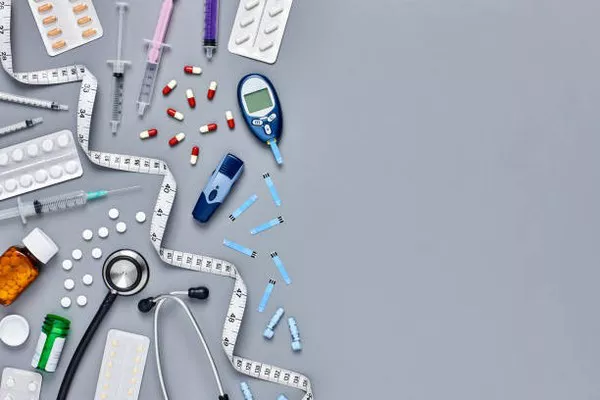The rising popularity of weight-loss drugs like Ozempic and Wegovy, along with their increasing availability through telehealth companies, has sparked new concerns among eating disorder specialists. These medications, originally developed to treat conditions like diabetes, have become widely sought after for their ability to suppress appetite and aid in rapid weight loss. However, this surge in demand and ease of access is raising alarms about the potential risks these drugs pose to individuals in recovery from eating disorders such as anorexia.
The Rise of Telehealth and Compounded Weight-Loss Drugs
As demand for weight-loss drugs surged, telehealth companies quickly capitalized on the opportunity, offering cheaper, compounded versions of medications like Ozempic and Wegovy. These versions, often less regulated than their branded counterparts, have become increasingly accessible to consumers. The prescription process can be shockingly easy, with some companies allowing customers to fill out simple online questionnaires to obtain a prescription, often with minimal medical oversight.
While some companies conduct video consultations with doctors or use scales linked to health apps to verify patient information, others rely on self-reporting, asking only for details like weight, BMI, and basic lifestyle questions. The ease of acquiring these prescriptions—often without significant medical evaluation—has raised concerns about who is responsible for ensuring these drugs are not prescribed to people who may be harmed by them.
Risks for Those in Eating Disorder Recovery
Eating disorder specialists have noticed a troubling trend: more patients are relapsing or exacerbating their conditions after being exposed to these weight-loss drugs. According to experts, people recovering from eating disorders are particularly vulnerable to the allure of drugs that promise quick weight loss. The marketing of these drugs, often targeting those looking for fast results, can trigger deep-seated psychological issues for individuals with a history of disordered eating.
AJ Jasper, a 38-year-old from Chicago who has battled anorexia throughout his life, serves as a poignant example. AJ, after years of successful recovery, was exposed to a barrage of weight-loss drug advertisements on platforms like Hulu and social media. During a stressful period in his life, he was drawn to the idea of regaining control over his emotions through weight loss. AJ ultimately sought out a prescription from the telehealth company Hims, filling out a questionnaire in minutes, despite knowing he was not supposed to lie about his medical history.
Once he began taking the drug, AJ experienced an immediate sense of control, likening it to a “high.” He injected six times the recommended dose, which resulted in severe physical illness and a relapse into his eating disorder. After months of misuse, he was hospitalized and eventually moved into intensive inpatient care for his anorexia, losing 40 pounds and facing potential organ damage.
The Role of Marketing and Self-Reporting
The simplicity of obtaining these drugs has raised concerns about how easily individuals can access them without adequate screening for mental health issues. Experts warn that the marketing of these drugs, which often includes aggressive advertising and promises of quick weight loss, can be especially harmful for those in eating disorder recovery.
The question of how much responsibility lies with telehealth companies and doctors to screen for eating disorders before prescribing weight-loss drugs is a central issue. Some companies ask about past eating disorder behaviors on their intake forms, but experts note that this kind of self-reporting is not always accurate. Vulnerable individuals may lie or omit key information in order to obtain a prescription. As one expert put it, “streamlining the prescription process can put certain vulnerable populations at risk.”
Wider Implications and Lack of Regulation
Despite anecdotal evidence suggesting a growing problem, there is little concrete research into how widespread the issue is. However, doctors in the field have shared concerns, with some reporting seeing one to two new cases of eating disorders triggered by weight-loss shots every month. The broader issue of access to these drugs, particularly in less regulated spaces like medical spas, has raised alarms. Many states have varying levels of regulation for telehealth services, and the lack of standardized practices for screening patients is a significant concern.
With the weight-loss drug market growing rapidly, estimated to be worth over $2 billion annually, experts worry that the ease of access and lack of medical safeguards could lead to more patients falling through the cracks. Telehealth companies, which have already spent millions on advertising, are eager to meet the increasing demand, but the question remains: How much should these companies be responsible for screening patients and ensuring they are not prescribing drugs to those who could be harmed?
The Need for Better Safeguards
Experts agree that more rigorous screening and safeguards are necessary, particularly when it comes to vulnerable populations. Doctors emphasize the importance of evaluating a patient’s relationship with food and their mental attitude toward weight before prescribing weight-loss medications. It’s crucial that patients have open, honest conversations with trusted healthcare providers to assess whether these drugs are right for them.
For those in recovery from eating disorders, the rise of weight-loss drugs offers both potential risks and challenges. As the market for these drugs continues to grow, experts urge both medical providers and patients to be cautious and prioritize mental health alongside physical health.
While drugs like Ozempic and Wegovy are not inherently harmful, they are not suitable for everyone, particularly those with a history of eating disorders. Doctors and specialists stress the importance of a more comprehensive and thoughtful approach to prescribing weight-loss medications, with an emphasis on mental health and proper screening. In the case of AJ Jasper, the easy access to these drugs led to a tragic relapse, and his story serves as a stark reminder of the risks involved in an increasingly accessible market for weight-loss solutions.
Related Topics:
How to Choose Weight Loss Drugs for Stress Eaters


